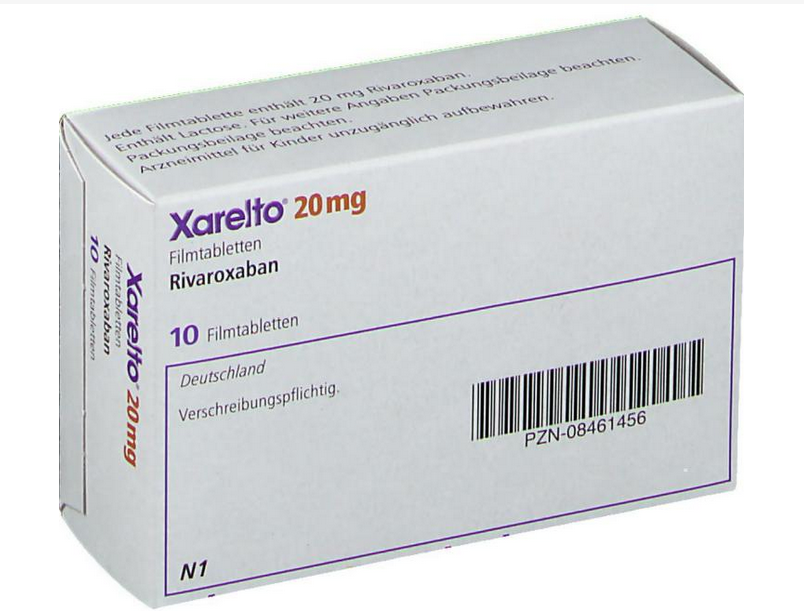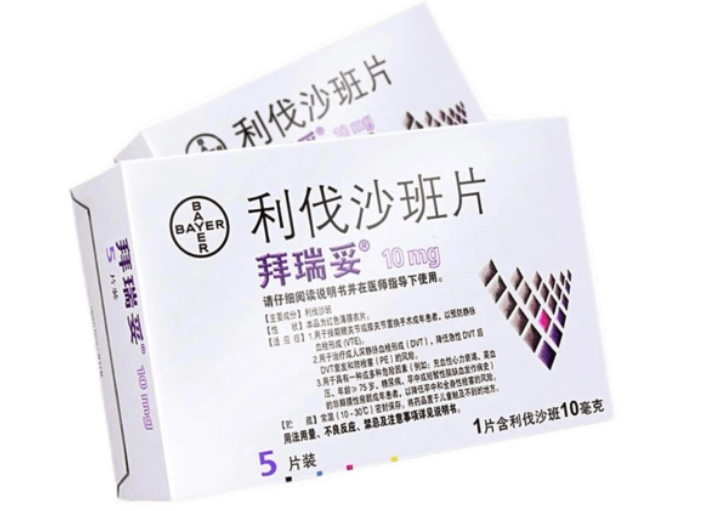Rivaroxaban, as a new oral anticoagulant, has been widely used in the prevention and treatment of venous thromboembolic diseases. What do I need to pay attention to when taking rivaroxaban?
Unlike warfarin, rivaroxaban does not require monitoring of blood clotting indicators. Changes in renal function should also be reviewed regularly to facilitate your doctor's comprehensive assessment of your condition and determine the next step in your treatment strategy.
What should I do if I find a missed dose?
If you miss a dose, you do not need to use a double dose for the next dose. A missed dose can be made up within 12 hours of the missed dose. If more than 12 hours have elapsed, the next dose will be taken as scheduled.
What are the signs of possible anticoagulation deficiency or overdose during the dosing period?
If anticoagulation is inadequate, it may lead to an increased risk of blood clots. If you experience any of the following symptoms during the course of your medication, you should be examined immediately at a nearby hospital.
1. Face: facial numbness, asymmetry, or crooked mouth;
2. Extremities: numbness in the upper extremities, inability to hold hands flat for 10 seconds;
3. Speech: slurred speech, difficulty in speech;
4. Emerging dyspnea or chest pain;
5. Loss of vision or blindness.
What are the signs of anticoagulation overdose?
If there is an overdose of anticoagulation, it can easily lead to bleeding. Therefore, it is important to monitor for bleeding while taking rivaroxaban. For minor bleeding, such as bleeding gums when brushing teeth or bleeding spots after skin bumping, it is not necessary to stop or reduce the medication immediately, but monitoring should be strengthened. Minor bleeding is small, can recover on its own, and generally has little effect. For severe bleeding, such as bleeding from urine or stool or sudden headache, nausea, vomiting, dizziness, etc., the danger is relatively serious and should be examined immediately at a nearby hospital.
Minor bleeding: increased skin bruising or bleeding spots, bleeding gums, nosebleeds, conjunctival bleeding, prolonged menstrual bleeding.
Severe bleeding: red or dark brown urine, red or black tarry stools, swollen and edematous abdomen, vomiting blood or hemoptysis, severe headache or stomach pain.
What do I need to pay attention to in my living habits and daily activities while taking the medication?
Patients taking rivaroxaban should stop smoking and avoid alcohol. Smoking or drinking alcohol can affect the anticoagulation effect. It is recommended that you use a soft-bristled toothbrush or floss to clean your teeth, and it is better for men to use an electric razor than a manual razor when shaving.
In addition, what drug interactions should I pay attention to while taking the drug?
Rivaroxaban has few interactions with other drugs, but to reduce the risk of medication, please inform your doctor of all other drugs you are taking.
Can I have other tests while taking rivaroxaban?
If you plan to have a tooth extraction, gastroscopy, fibrinoscopy, etc., while taking anticoagulants, please tell your doctor that you are taking anticoagulants.
Post time: Oct-27-2021


